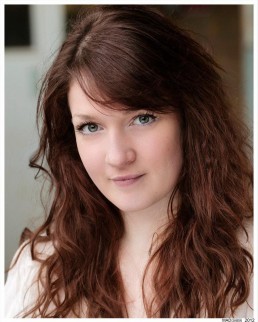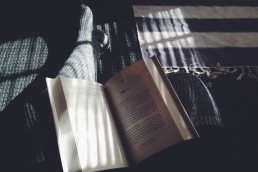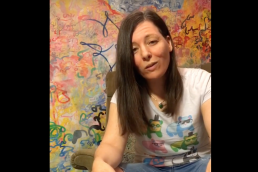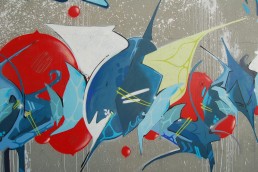by Niamh Handley-Vaughan
Photography: Alisa Anton via Unsplash
When I was growing up I didn’t see my extended family much until my late teens, it was only a few years ago that they paid me a… backwards compliment. I’m sure it was well intentioned but I found it a little odd. They said that once they got to know me, they were surprised how strong and intelligent I was, that they’d thought I was just a “weak little fairy girl”.
I am quite “feminine”. I like flowers, my voice is very soft and girlish, I like to wear dresses, I did years of ballet and jazz dance classes, I’m a listener first and a talker second, I like pretty things, I can sometimes be reserved and quiet, I like to bake, I can be diplomatic, I giggle a lot, I cross my legs when I sit down, I like to do crafts. I am quite “girly”. These are things I never used to dislike about myself, in fact I enjoyed being “girly”, I felt at home in my skin and the way I walked through the world. Until, that is, I started to approach my early twenties and I realised people didn’t really take me very seriously. I was still being treated like a child, even by my peers.
I have encountered sexism, but this was different from the standard formula I was aware of before. The people viewing me as the “weak little fairy” were both men and women, and usually they had a very specific view of what a woman with anything interesting to contribute had to be. Generally, she was to have a more stereotypically masculine energy than me, whether that meant being louder, a deeper voice, or just simply having more of a taste for trousers over skirts. This isn’t to put down women who walk through the world like that, that’s who they are and that’s wonderful, everyone’s uniqueness is what makes people so amazing, but it’s not me.
After a while of being patronised and dismissed, told I wouldn’t be able to “handle” things in the big wide world from strangers, or having people, even friends, telling me how sweet I was when I tried to voice an opinion; after being laughed at when I got angry because of my “cuteness”, I got fed up.
After a while of being patronised and dismissed, told I wouldn’t be able to “handle” things in the big wide world from strangers, or having people, even friends, telling me how sweet I was when I tried to voice an opinion; after being laughed at when I got angry because of my “cuteness”, I got fed up. I tried to lower the pitch of my voice, changed the clothes I wore, stopped openly talking about interests that could be perceived as “kitsch” or “girly” instead of cool. I tried to look more streetwise. I hid my anxiety disorder away and never spoke of it, not wanting to give more people an excuse to call me weak. The people who did know about it, even some of them felt I should just “man up” and deal, like a more masculine energy would magically fix the issues in my brain.
It didn’t matter that, most of the time, I actually felt quite confident, that I knew how to handle myself, that I was good at public speaking, that I had a fairly thick skin and thoughts and opinions beyond kittens and knitting. I didn’t look that way to others, and so they wouldn’t believe me when I tried to put that across.
It was quite difficult to keep up the charade and, to be honest, I’m sure I never fully did. To change your mannerisms; voice, tastes – basically the shell of who you are – is not easy. I started to think this wasn’t my fault too; there’s something wrong with the way society perceives girliness and I shouldn’t have to change to give way to that. Around the time of these realisations, in about 2012, the show New Girl, starring Zooey Deschannel as main character, Jessica Day had just started. Jessica’s a very feminine character who also likes to craft, has a penchant for skirts and, back in my university bedroom when the show came out, I caught an episode where Day defended herself:
“I brake for birds. I rock a lot of polka dots. I have touched glitter in the last 24 hours. I spend my entire day talking to children, and I find it fundamentally strange that you’re not a dessert person. That’s just weird and it freaks me out. And I’m sorry I don’t talk like Murphy Brown, and I hate your pant suit and I wish it had ribbons on it to make it slightly cute. And that doesn’t mean I’m not smart and tough and strong”
This little comedy struck such a chord with me. Over the last few years I’ve come to a place where other people’s view of me doesn’t bother me on a personal level as much anymore. I’ve developed an assertiveness which I’m sure is a factor, but times are changing and more pop culture characters like Jess Day are helping that.
People still like to tell me I’m a “dark horse” or mention how “it’s always the quiet ones”, often delighting in telling me how I’m not like they thought I was when they first met me, like I’d be thrilled I’m actually not perceived as just “girly”. I don’t mind so much anymore. I’ve become secure again in embracing who I am and I’m happy in that skin; the people I care about are the ones who’ll get to know me and see past all that, or better yet, embrace it as a good thing to begin with.
And the idea that overt femininity is a weakness? It’s a concept I hope we break.
Niamh Handley-Vaughan
Niamh is an Actor and Director with a penchant for writing. She’s in her late twenties, lives in London and loves to get lost in the fictional worlds of books, theatre and film.
As an introverted teenager struggling with an anxiety disorder she used the arts – drama, music, writing, art et al to help her explore the world around her. As such she is a huge music fan and works best late at night listening to Spotify through her headphones. She is also co-host of a Podcast about horror movies called “Do You Like Scary Movies?”
Niamh is an ice cream addict, a lover of arts and crafts and is often found where the glitter is.







